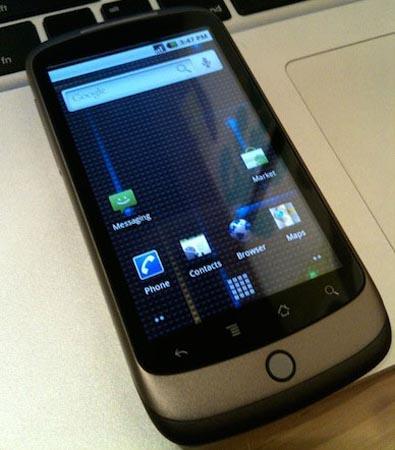
I have to give Google a lot of credit for what they have done with Android. Over the years the mobile operating system hasn’t always been the center of loving affection, and there are still people out there who would love to bash it for being on too many devices, and having a ridiculously long staircase of versions, but for the most part Android has done quite a bit for the mobile industry. Specifically, for itself. If you look back at the first version of Android, and you look at what’s running on a stock version of LG’s Nexus 4, the differences are drastic and staggering. Android has come a long way, but is Android still missing something?
Before we get to the meat and potatoes of the article, though, I want you to look at your phone right now, whether it’s an Android-based device or not, and think about what went into making it. I want you to think about all those pieces of hardware, from the display to the processor under the hood. And then think about the software that makes it all come together, work like it should, and hopefully make you a happy owner. There’s a lot that goes into that, and it gets compounded when you start adding different processors, different screen sizes and technologies, varying sizes of RAM, and different software versions.
There’s a lot that goes into one particular device, but the market is full of a lot of different pieces to an ever-growing puzzle. A puzzle that, leading up to now, was already huge. 2013 will see the inclusion of a plethora of new devices, new technology, and we should all be looking forward to it.
Especially when it comes to Android.
There is a real chance that 2013 sees the release of an Android phone that wows the world like HTC’s Nexus One did so many years ago. The particular handset really was great, and I think a lot of Android fans are still waiting for another phone like that to show up on the scene. Does it have to be another Nexus device? No, I don’t think so; I think it’s just got to be another device that marries hardware and software in such a glorious way that it is impossible to ignore.
Could Google make that happen if they initialized a hardware standard? Some might believe they could. It’s a strategy that Microsoft uses with their mobile operating system, Windows Phone, but it’s debatable whether or not that has worked well in their favor. In truth, while Windows Phone has high-end devices of its own, I’m not sure if any of them have really stood out as well as flagship Android devices have. I mean, if you look at, say, the Lumia 900 and compare it to Samsung’s Galaxy S II, for instance. Or even the Galaxy S III and the Lumia 920.
I’ve heard some talk, off and on, that Google should put a bigger focus on standardizing their hardware. Or, to put it another way, set hardware requirements. I can see how this could make sense, as it would set a level playing field, while also making it easier –possibly—for developers of applications to keep up with all the different hardware options out there.
But, I don’t think it could work for Android in the same way that it apparently works for Microsoft. Not in the same way. If Google were to set a hardware requirement for their Android-based devices, I think it shouldn’t be for the high-end devices, but instead for the other end of the spectrum. Set a baseline, so to speak. Minimum specifications. “You can’t go any less than this,” basically. Maybe make 3.5-inches the smallest a screen size can be running Android 4.2 from here on out. You can only launch a phone with a 1.5GHz dual-core or above processor.
I’m just throwing snowballs, for the record. I don’t think Android should incorporate any kind of hardware requirement for its devices, but especially not for the high-end models. While I think Apple revolutionized the smartphone market back in 2007, I think it’s Android that keeps the momentum going for better displays, faster processors, more RAM, and every other piece of outstanding technology that we have in any of the phones we have in our hands. Android or not.
Hardware requirements work for Microsoft, because they have a vision for Windows Phone that they want to adhere to, no matter what. Google’s vision for Android is just different, and that’s not a bad thing. Yes, there are some phones that won’t get updated to the latest version of Android, but as we’ve been shown from Microsoft, even hardware requirements won’t alleviate situations like that. So, I think Android should just be able to keep on doing what it’s doing. Forcing the industry forward. Who could possibly say that’s a bad thing?
But, let me know what you think, Dear Reader. Should Android see a hardware requirement in 2013? Do you think that would help, or hinder Google’s mobile platform? Let me know!